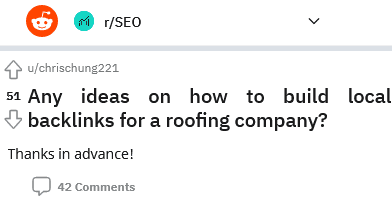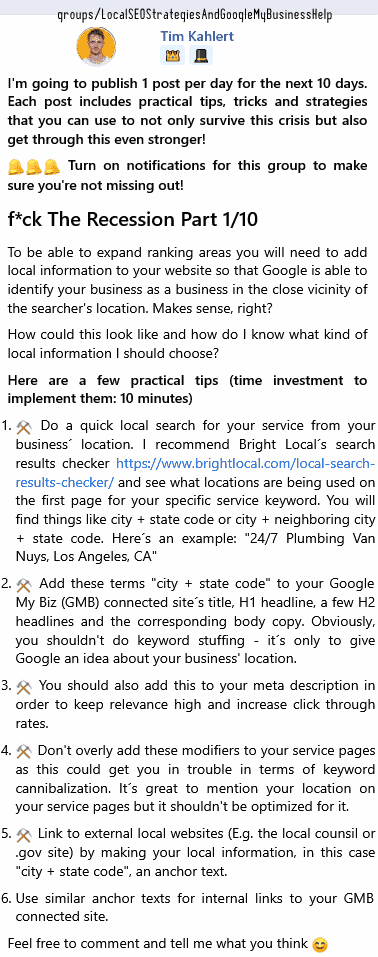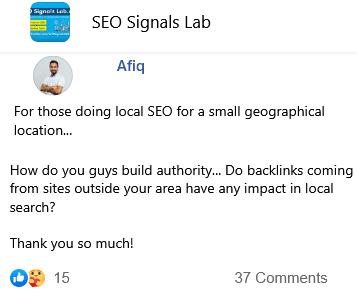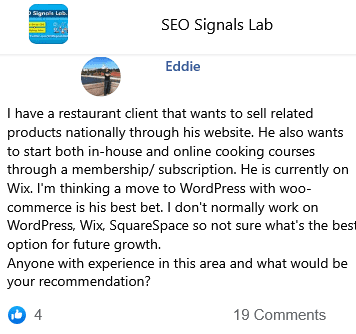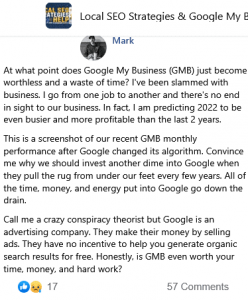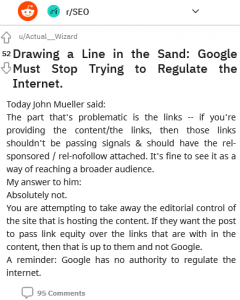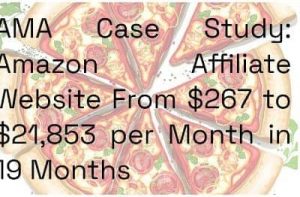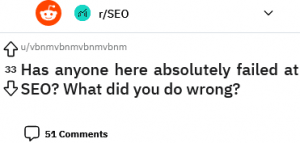SEO Ranking Guide – Dental Clinics
In this post I'm going explain how to rank dental clinics on Google. I've learned a lot from the people here and I've tried my best to give advice where I can to other members, so I thought I'd create some content to help other SEO users with their client work and regular business owners who don't have the budget to hire a professional but still want to improve their rankings on Google.
That being said, I thought it would be good to make a series of guides based on real website examples – I'll pick a real website that isn't performing well on Google, figure out what they're doing wrong and provide insight on what they need to be doing to grow their business using Search Engine Optimization (SEO). For this example, we're going to tackle a local dental client. I've simply picked a random location with a random website that isn't doing well organically.
Target Location: San Jose, California
Business Category: Dental
Business Name: Quality Dental Care SJ
Software/Services Used: Ahrefs , Screaming Frog, Surfer Local
Current SEO Audit
The first thing I'd do is perform a quick audit on the current setup. This is local SEO so we need to be looking at local searches and GMB (Google My Business). GMB is very important for local businesses, when a potential customer types in terms like "family dentist", above the organic search results local businesses will appear in the "map pack", which is a map with 3 featured businesses, with shows relevant business information such as opening times, reviews and contact details, as well as buttons to call the business or visit their website.
GMB Listing
I'm using Surfer Local to perform a grid search for keywords related to the business. What Surfer Local does is simulates a search in the service area of the business in many spots to fetch the ranking for the business. The results are displayed as a grid – each small circle contains the current ranking in that area and the radius around the circle is depended on the difficulty of improving the situation (green = easy, orange = medium, red = hard). What we want is a ranking between #1-3, which would place us in the map pack for that search result.
The way to rank well in GMB is by filling out all the information you can, collect regular reviews from customers, create regular GMB posts with relevant updates and create local citations. However, one of the #1 ranking factors is the location of the business – the closer you are to the searcher, the better chance of showing.
Here's the results of my local search for "dentist" in the area around the clinic.
https://imgur.com/3hVsRCS
In the direct area around the clinic itself they rank #1 and #3 for the keyword. Further than that, there's a lot of room for improvement. In Surer Local we can run an "Audit" on every circle that appears in the results. This audit will take into account competitor listings and provide you with suggestions to outrank them.
After I ran an audit on the circles, several few issues were spotted:
• The business description is missing.
• There are no GMB posts.
• A lot of time between reviews (and lack of responses to reviews)
• Secondary categories are missing which could be added.
📰👈
Current Local Citations
The second thing I did was run a search on Moz Local's listing checker. This tool allows you to search for a business and it'll check socials, directories & GNV for your listing and check for Name, Address & Phone Number (NAP) consistency. NAP, which stands for Name, Address, Phone Number, is very important for local SEO. You need to make sure every single mention of your business across the web is consistent with NAP – if you have any of it different, Google may not make the connection. When you create these mentions on the web, they are called local citations.
Here's the results of the scan I ran:
https://imgur.com/OfasEsY
Not very good. 54% of sites searched don't have a listing for the business, 42% have a listing but they are inconsistent (name, address or phone number may be different or formatted different) and only 4% correct.
Overall, a lot to be improved there.
Website
The website itself is fine. A website does not need to be a work of art to rank, it just needs to have decent internal linking, a good amount of quality content (with keyword research in mind), be relatively fast and have some authority (through backlinks).
Some problems with the current website:
• Keyword research needs done
• Page speed could be improved
• Content is a thin on pages
• Page titles/h1 tags/alt text could be optimized
I ran the website through Screaming Frog, which is a tool that crawls websites and returns a lot of useful information like the indexability of pages, the crawl depth, the amount of words on the pages, along with h1/h2/h3 tags etc, the schema on pages as well as a lot more.
From the scan, there aren't any glaring issues. If you check the right side of the tool and click the "Structure" tab, there's a window called "Crawl Depth" just below it. This is how many clicks a visitor needs to get to all the pages on the site, the higher the number, the more effort the Google crawler needs to find the content on your site. You only have a limited crawl budget, so this is important to get right. I recommend requiring no more than 3 clicks to get to every page on your site. This can be achieved by having good internal linking, either through a main navigation menu that links to the majority of your pages, or at least linking to parent pages like "Treatments" and on that main page linking to the internal treatment pages.
Backlinks & Authority
If you want to rank well on Google then you want to make sure you have a good backlink profile. If you have solid backlinks from local directories, local news websites, industry specific sites and in general higher authority sites than you, this is passing authority to your website. For this, quality is better than quantity – if you buy 1000 links from Fiverr, you're not going to see any positive impact. One good link is worth more than 10,000 bad ones.
Dofollow links are what matter the most here (although having a mixture between nofollow and dofollow is recommended) as they are the links that authority will flow through.
It's also worth mentioning that you should focus on referring domains when analysis the current link profile, not the total # of backlinks. If a website links to you more than once it's not going to improve much further, the goal is the total number of quality sites linking to you rather than getting multiple from the same site.
In Ahrefs "Site Explorer" the website has a domain rank of 0 and 23 total referring domains. Only 4 of them are dofollow and 2 are useless & spammy. The remaining 2 are directory links.
SEO Work
Step 1: Keyword Research
The first step is actually coming up with a plan of keywords, or search terms, that we want to target. Having a site that's beautiful and optimized is great, but if it's focusing on keywords that don't get any traffic then it's all for nothing.
The way I start keyword research is to search "dentist [city name]", make note of top results and run them through site explorer to see the keywords they rank for. In this case, I searched "dentist san jose ca" and made note of the first page results and ran them through the site explorer tool to look at their keywords.
From that, I came out with the following keywords:
"dentist san jose" – 400 searches per month
"dentist in san jose" – 150 searches per month
"dentist san jose ca" – 70 searches per month
"family dentist san jose" – 20 searches per month
"san jose dental implant" – 50 searches per month
"dental implants san jose ca" – 80 searches per month
"dental implants san jose" – 60 searches per month
"cosmetic dentist san jose" – 100 searches per month
"san jose cosmetic dentistry" – 70 searches per month
"teeth cleaning san jose" – 200 searches per month
"veneers san jose" – 20 searches per month
"emergency dentist san jose" – 100 searches per month
"teeth whitening san jose" – 200 searches per month
"tooth whitening san jose" – 150 searches per month
"braces san jose" – 40 searches per month
A lot of the tools are usually conservative with their estimates – I find the real number is usually higher. You'll also find that some low volume keywords might not have much data available.
Some of these keywords will be secondary keywords, in that you'll mention them in the website content, either within paragraphs, alt text or heading tags, but the main keyword is what you'll use in the page title and h1.
Also, please look at the search results for these keywords and check the search intent before targeting them. The keyword "best dentist san jose" gets 350 searches per month but every result is a "Top 10 Dentists in San Jose" type page – you aren't going to rank for that.
Step 2: On-Page SEO
Now that we have keywords to target, now we need to make use of them. A good way to do this is create a list of pages on your website, assign keywords to them and decide the page title, headings and content that needs optimized. This includes word count. The best way to decide the word count and other on-page elements like h1 and alt tags is to search for your target keyword, visit the top 5 results and check what they have. This is what Google is currently rewarding, so try and follow those guidelines.
If you don't want to do this manually, you can use Screaming Frog to do some of the leg work for you, as it can grab all the different h1-h6 tags, as well as word count on each page and other details.
I want to make this very clear: You NEED to be writing high-quality content. Don't write 200 words and call it a day, and don't hire someone for $5 to write 1000 words of keyword stuffed rubbish.
You'd want to achieve the following on all pages:
• Main target keyword in the page title, along with included in the page content, h1 tags and alt image text, IF the top competition is doing it. For example, if the top 5 competitors for a keyword are NOT including the exact keyword phrase in the h1 tag, then you probably shouldn't either.
• Quality content, no keyword stuffing in unnatural places and an overall word count that's close to what the current search result pages
• Answer popular questions in Frequently Asked Questions (FAQ) – If you Google your keyword, you'll find a "People also ask" box in the search results. These are perfect for giving Google what it wants. Grab these questions and answer them FAQ style somewhere on the page – if you're lucky, Google will use your site in the featured snippet and you'll get a bunch of extra traffic.
Here's some examples of what we could do:
Homepage
Keywords: "dentist san jose", "dentist in san jose", "family dentist san jose", "best dentist san jose"
Page title: "Family Dentist in San Jose | Quality Dental Care"
h1: "We're the Best Family Dentist in San Jose"
Word count: 1395
Treatment Parent Page (/cosmetic-treatments)
Keywords: "cosmetic dentist san jose", "san jose cosmetic dentistry"
Page title: "Cosmetic Dentist San Jose | Quality Dental Care"
h1: "Cosmetic Dentistry"
Word count: 1423
Treatment Child Page (/treatments/dental-implants/)
Keywords: "dental implants san jose ca", "dental implants san jose"
Page title: "Dental Implants San Jose CA | Quality Dental Care"
h1: "Dental Implants"
Word count: 1524
These are examples, but you can mix it up. You need to look at what the competition are doing and realise that even if your on-page is perfect, if you don't have a solid backlink profile then it's going to be difficult to rank high in competitive markets.
A must for local SEO is to implement local business structured data. This is a snippet of code that includes information about your business, the type of business, the opening hours, your social links and a whole bunch of other stuff. Including this on your site can help your rankings, especially in Google My Biz (GMB). If you Google "local business schema generator" there's a bunch of sites that can help you create this, with instructions to put it on your site.
Step 3: Backlinks
Having good, optimized content is great, and sure, you might reach the front page for low competitive search terms without them, but longer term, and by targeting competitive keywords (that bring more $$$), you're going to need to get backlinks.
Here's what I do to build a good backlink profile:
• Create local citations – These are mentions of your NAP (Name, Address, Phone Number) on directory listings. They are mostly nofollow, but they are absolutely needed for local SEO and Google My Business – plus, you need a backlink profile that's diverse. You can use a service like "SEO Builder" to build these for you or do it manually. The more local, the better. The more relevant, the better. Make sure you mix up your business description or the link won't get indexed.
• Use HARO – HARO is "Help a reporter out" and it connects reporters looking for information with specialists willing to provide it in exchange for a link back to their site. You get 3 emails per day with a list of opportunities – I'd ctrl + f and search for "dental" and other related keywords, then reach out. You can get featured on high authority domains this way with minimal effort.
• Start a blog – Not only is this a great way to get traffic on your site from long tail keywords, but websites in your industry are willing to link back to resources that provide value. It's going to be difficult getting high authority sites to link to a dental service page that doesn't offer anything.
• Guest blogging – Reach out to industry related blogs and pitch an article that would provide value for them. They're usually happy to provide a link back, either in the article, or at the end in the author bio box. The best links you can get are from higher authority sites that don't just accept guest posts from everyone.
• Reverse engineer backlinks – Use Ahrefs to pull your competitors backlink profile – sort by dofollow and make a list. These sites were willing to link to them, so perhaps they'd do the same for you. What you'll find is the majority are directory links, but if it's working for them, then you might as well get a link from the same site.
• Sponsor a local business/event – This one is common in the law industry. Reach out to events and offer to be a sponsor. You'll pay for this, but a link from a local business is a big deal for local SEO, so it's usually going to be worth it.
Should I build backlinks to my homepage or service pages? Both. If you have very low authority, you should prioritise building to your home page for a few months, but beyond that, a 50/50 split is ideal. Prioritise keywords with decent search volume that are quick wins. For keywords like "dentist san jose" it's usally the homepage people are trying to rank the term for, so naturally they'll have the most backlinks and therefore harder to rank. But for inner pages, what you'll find is there is a lot of opportunities.
Take the keyword "emergency dentist san jose" for instance. It has 100 searches per month – but look at the top 10 results:
https://imgur.com/jm7Fq7k
All the front page results are inner pages (i.e not the homepage) and the majority of them don't have any backlinks pointing to them. In this case, these aren't even high authority sites either and the backlinks some of the pages do have are nofollow spammy links, which means they have zero value.
If you build 1 or 2 good dofollow links to your own page targeting that keyword then you're pretty much guaranteed first page ranking.
Conclusion
SEO takes time and effort. If you give Google what it wants, you'll be rewarded for it. Will implementing these changes put you on the first page overnight? Well, it's possible, but realistically, SEO results usually take a while. If you do everything right, eventually you'll see the results though.
If you saw value in what I wrote above and want me to do the same for other industries, please let me know. Any questions I'll answer in the comments too.
50 💬🗨
Exact match headings should only be used like that if other top competitors are doing exactly the same, which is rare. I've seen plenty of examples of the organic rank dipping after switching from natural headings to exact match. You're missing a lot regarding links that are no-follow. For some reason most people think they do little to nothing. Probably cause tools don't know how to provide data on them. They might not pass off "authority" but they do directly pass off relevance. Which is one of the 3 major categories of factors for local seo. People that miss this will miss tons of opportunities for other clever ways to create signals.
I kinda agree, but what I've found is if a site doesn't have much "authority" using the keywords in this way increases their chances of ranking higher IF they had random headings before, which many do. The h1 can be structured in many ways, of course, but really, a lot of this stuff should be tested and if something isn't working, things need to be switched up.
I have mentioned looking at what Google is currently rewarding, and even had a section on how to use a tool to audit all of this to make decisions but a mod told me to remove it as I was promoting my own tool… which I wasn't, because I have no affiliation whatsoever. It's a known tool in SEO groups. Any way, I will clarify and put more effort into that section.
As for no follow links still being useful – absolutely. I thought I did mention that. Overall they should not be your focus though, because these guys have no issue getting these kind of links then posting on Facebook groups "why am I not ranking?!". I do have a section on local citations though, which are useful nofollow links.
Thanks for the feedback mate. I've seen you around in Facebook groups, by the way. I've interacted with you before.
darksky
I like how you put all your work like a case study. I wanted to know how did you write your blogs were they more informational and educational content or were they promotional content and which type brought more customers? How did you retained your customers? I would love to hear those insights!!
Always educational. You want to target long tail keywords that answer questions people have about your services – this way over time you have a good chance of attraction natural backlinks from other websites in the industry.
FStudio
Now all competitors know how outrank this site.
Refraining from using keywords in titles, URLs, and headers gives you a competitive advantage. But if you don't know how to optimize without putting keywords into titles, URLs, and headers you're at a competitive disadvantage.
Could you show some business results (conversions, revenue)? Also, how many conversions that keywords generate? Did you predict it?
No they don't, because if your area has any sort of competition at all, then simply altering on-page won't move the needle. The idea is to create high quality content, include the keyword in places where it's natural and build authority. That last one, if done right, will ensure you'll rank in the top half of the first page regardless of how much effort your competitors are putting into their on-page.
I do kinda agree with you, you shouldn't just throw the keyword into page title, h1 etc, but this is only if your competitors aren't doing it. If they are doing it, and ranking well, you should probably try your best to copy them to see the results. If you aren't seeing any improvements, then of course, you should switch it up. I did not mention stuffinf the keyword into URL's though.
I need to make it clear in my post, but the two most important steps in this are to write great content that answers the visitors questions AND build authority through good backlinks. Those are what the majority of your competition are lacking.
Thank you for your reply.
MisterFor
Very nice guide. 👌
The most difficult part for me about dental clinics SEO is to get the damn owners to write any content or provide quality pictures. (my father owns multiple dental clinics )
Yeah, absolutely. It's frustrating when this happens and it happens very often.
James
Good work up here. Very thorough and organized writed up and a lot more in-depth than traditional SEO posts out there.
But, it does glaze over an important issue with DDS sites, and that's backlinking.
I've worked with dental clients before and have a dental client now that I've gotten to rank on several high-value keywords (and stay there for years). However, the biggest challenge is finding partners to backlink to outside of directories.
The dental niche is very narrow. So, you'll have a couple very popular dental websites like Dentaly and Dental Authority that you can get featured in, but the rest are going to be very niche, dental magazines/medical publications. And a lot of those don't link to sites directly.
Tactics like link stealing don't work well b/c most of the dental articles out there are linked to by DDS, direct competitors. So, they won't work with you. Even if you're in a different state. One great tactic is to see if your dentist can give you a list of the brands they work with (things like dental implants) and reach out to those businesses. They often link to partners.
Also, unlinked mentions can work if your dentist has been active in the past or is well-known. But they can be a pain (my client was quoted by NYTimes and they wouldn't link to them.)
Broken link building can work well here. But again, a lot of these will be DDS and not willing to link.
Directory listings help with local, but there are a lot of trash ones out there that aren't worth the trouble. I'd stick to the dental-specific ones and big ones like Yelp.
Help a Reporter Out (HARO) is great, but dental questions are rare. Lots of business, tech, and dermatologist/health/beauty questions out there.
If you want your dentist to rank, you have to work with them on being more proactive about producing content.
The dental niche is very narrow. So, you'll have a couple of very popular dental blogs like Dentaly and Dental Authority that you can get featured in or write a guest post for. But, they want they don't want content written by SEO users. They want the real deal.
Finding a place for guest posts in other blogs without being asked to pay for it is really hard. People see dentists, they see money. They know by helping them rank, they're bringing A LOT more money to their business. In my experience, 99% want $$$.
The rest of the websites out there are going to be very niche, dental magazines/medical publications. And a lot of those don't link to sites directly.
Working with a dentist that has the time to be interviewed and wants to work on content is crucial to ranking well.
It's a bit of a grind, but a lot of dental offices have very low Ahrefs Domain Rating (DR). So, the good news is that after that initial push, you can outrank them on a lot.
Good comment! Thanks for your input. I forgot to mention the reach out to suppliers, that's a good one I've used in the past. I definitely should have put more effort into the "start a blog" section. I didn't want to mention "black hat" methods, but really, paying for links is a great way to quickly build authority which nobody will mention on here because they fear Google. I guess that isn't a bad fear to have, but these days if you secure links from real websites that get traffic then you'll never get penalised.
laurnicolae
Great one u/CaptainJamie!
I have a few questions:
• Are you doing anything for E-A-T?
• Maybe you could share the address of the website you've optimized?
• I have a dental clinic website that I manage and the rankings dropped after the December <year> update (some keywords went from page 1 to page 4 or so).
I never did something shady or buy links, I don't have any manual penalty.
Few months prior to that we added an ecommerce section to the website where they sell premium dental care products. Do you think it could affect the Search Engine Optimization (SEO) of the website? I can move it to a subdomain because it's not the main business.
• I would in any health niche. Make sure credentials are known, collect customer reviews regularly and display them, if you product blog content make sure it's up to date and the author (an expert) details are on the page and get backlinks from authoritive sites.
• I actually haven't done anything to this website, it's just a guide I wrote for this subreddit on how I'd improve the sites SEO – I picked it at random.
• Ecommerce section shouldn't affect anything negatively. Did you change any content, remove any internal linking or did you lose backlinks in that time? If you PM me the website I can take a look to see if there's anything obvious.
Thank you u/CaptainJamie.
No big content change or internal linking, we might have lost some backlinks but from a website that was their partner and had links to them on every page, however it was a soccer team, nothing related to dentistry and a few other links that were not high quality.
skuterkomputer
This is great info. Thank you. It helps me realize all that goes into Search Engine Optimization (SEO). I am working through this myself and am curious. With the local citations referenced on moz local. Many of the sites require separate payments or subscriptions (yost) is this money well spent? Also, my location has a suite number. Some citation services have a section for suite, some don't, is there a best practice here? I just put #160 (my suite number) as part of the address I enter. One final question. I run a senior in-home care service. Properly in-home care should have a hyphen (in-home care). However, when searching I believe most would omit the hyphen. Do I need to optimize for both, does Google ignore the hyphen, or do I write without the hyphen? TIA Oh BTW heres my site just in case anyone wants to roast it. www.abbyservices.com
An Agency Said 7 Niches Contains Most Clients: Dental, Eye Care, Hospitals, SaaS, Education, Finance, and Cannabis!
My Local SEO Step-By-Step Guide to Help Your GMB Business Rank Consistently
Off-Page SEO Strategy to Get Backlinks: Spreaded 200 Emails. Returns 82 Replies and 36 Unique Responses
If You Feel Google Play Which SEO You Believe
102 Best SEO Tips to Help You Drive Traffic This Year: Do Keyword Research, Hire Writers
Best Local SEO Tool for Someone Mainly Not in the SEO Industry



